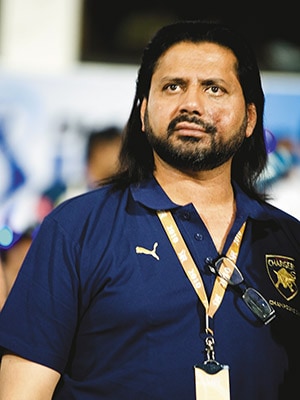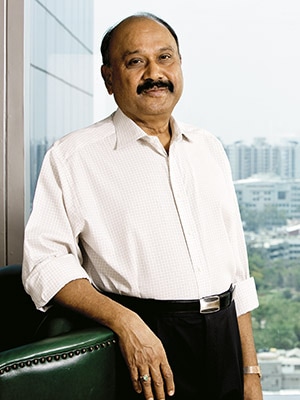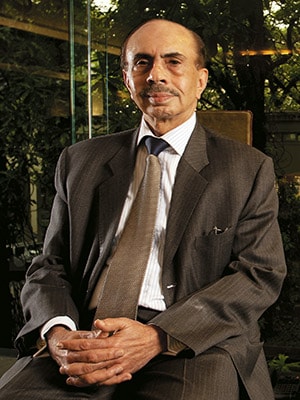

1. Biocon-Pfizer: The $350 million insulin deal that wasn’t
In March 2012, Biocon and Pfizer ‘amicably’ parted ways after their 15-month-old $350 million deal to market Biocon’s insulin products fell through. Both partners were hit hard: Pfizer lost $100 million in upfront payment, a significant part of the $100 million escrow amount and a small severance fee for Biocon, the split restricted scope of monetising its insulin biosimilars in the US and Europe. The official reason for the break-up was a shift in priorities at Pfizer, which wanted to focus on its core strengths—diabetes, and its therapeutics not being part of them.
That’s a little difficult to believe, as priorities at big pharma don’t change at such short notice. But Biocon took it in its stride. In November, it found a partner in Bristol-Myers Squibb for its oral insulin programme (not part of the Pfizer pact). 2. BCCI: Deccan Chronicle
2. BCCI: Deccan Chronicle
When, in July, Deccan Chronicle (DCHL) defaulted on non-convertible debenture payments, it emerged that the company owed more than Rs 4,000 crore to lenders. Deccan Chargers, the IPL’s Hyderabad franchise, was one of its big assets that could fetch at least some of the money owed to banks. An auction in September saw a lone bid of Rs 900 crore from Hyderabad-based PVP Ventures, but it was rejected as the banks wanted part of the money upfront. The next day, the Board of Control for Cricket in India (BCCI) terminated the franchise. DCHL went to court. It ordered DCHL to furnish a bank guarantee of Rs 100 crore to BCCI, which it failed to produce. On October 13, BCCI scrapped the franchise and floated a tender for a new one. Kalanithi Maran’s Sun Group won the bid for Rs 85 crore per year, almost a 100 percent premium on what DCHL had paid for Deccan Chargers in 2008.
 3. GMR-Government of Maldives: Departure call for India Inc?
3. GMR-Government of Maldives: Departure call for India Inc?
Reacting to popular anger against airport fees, the Government of Maldives scrapped GMR’s contract to operate and expand Male’s Ibrahim Nasir International Airport in November. A consortium of GMR Infra and Malaysia Airports had signed the $512 million contract in 2010 to operate the airport for 25 years as well as build a new terminal. The deal was cleared by then Maldives President Nasheed, but soon ran afoul of opposition parties. Nasheed was ousted by an uprising for being corrupt, and his deputy Waheed Hassan took over in February. The new government stopped construction and the two parties began fighting a bitter battle that culminated in the government cancelling the deal. The last straw for GMR was when the arbitration court in Singapore ruled that the government was within its rights to end it. The badly bruised Indian company is likely to fight
for penalty payments.
4. Telenor-Unitech: The Rs 14,000-crore breakup
It was a marriage doomed from the start. Telenor, a multibillion dollar mobile operator from Norway, married Unitech, an Indian real estate-led conglomerate. The groom had a passion for technology, while the bride was ambitious, and used access to power corridors to corner land and spectrum. The groom paid the bride Rs 6,000 crore to get his hands on, well, purloined heirloom jewellery: Mobile spectrum in 2008 at 2001 prices. Telenor spent another Rs 8,000 crore trying to make the venture work. But competitors and an unforgiving market bled it. In early 2012, the Supreme Court took away the purloined heirloom as well. The marriage fell apart. After some bickering, Unitech accepted Telenor’s offer of a few months ago. Telenor is now rumoured to be dating Tata Telecommunications, which is in a stalled relationship with Japan’s NTT Docomo.
5. Godrej-Hershey’s: Bitter parting
After working together for a little over five years to crack the market for beverages, confectionary and grocery goods, Godrej and Hershey’s parted ways in September. The reason was simple: Hershey’s believed the company could grow a lot faster and needed to invest Godrej, with its 43 percent stake, was unwilling. At Rs 392 crore in sales in 2011-12, the company was a smaller part of the group’s consumer-facing businesses. With Godrej Consumer Products having gone on an acquisition spree in Latin America, Africa and South East Asia, Godrej decided to bet on the larger of the two companies.
Images:Deccan: Getty Images GMR: Mallikarjun Katakol for Forbes India Godrej: Dinesh Krishnan
First Published: Jan 03, 2013, 06:56
Subscribe Now